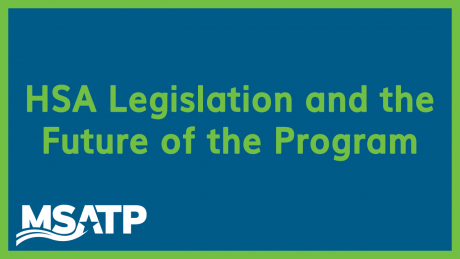3 Key Takeaways From the HSA Legislation Facebook Live Stream

MSATP just rolled out another Facebook Live episode that’s an absolute can’t-miss discussion covering the latest issues in tax and finance! We welcomed back Phyllis Burlage to review a new IRS tax platform, break down an important Health Savings Accounts update, and preview some upcoming legislation. Here’s a quick recap of 3 takeaways we covered in last week’s Live video.
1. IRS LAUNCHES NEW TAX PLATFORM
MSATP has an established, long-time partnership with the Internal Revenue Service (IRS). We’re always excited to see the IRS make improvements to streamline the process for taxpayers—and their new platform does just that! In late March 2018, the IRS implemented a new initiative called “Paycheck Checkup,” encouraging taxpayers to verify their paycheck withholding in light of the recent tax law developments. Tax professionals need to work with clients to insure they don’t incur an underpayment penalty or an increased tax bill on 2018 earnings next year. To help with this process, the IRS has a few handy tools accessible on its website, like the Withholding Calculator.
2. IRS INTERVENES TO CORRECT CONTRACEPTIVE EQUITY ACT OVERSIGHTS
In 2016, the Maryland General Assembly passed The Contraceptive Equity Act intending to revolutionize birth control access by expanding coverages and lowering costs for all forms of contraception by state-regulated insurance plans. Unfortunately, the new law jeopardized Health Savings Accounts in several unintended ways:
- The Contraceptive Equity Act requires that vasectomies have no co-pay or deductible
- The Affordable Care Act states that only “preventative care” can be fully paid by HSA Qualified High Deductible Insurance Plans
- The IRS classifies vasectomies as “elective surgery” NOT “preventative care”
The Maryland legislature attempted to resolve the issue by amending the law to exempt HSA High Deductible Plans from the vasectomy requirement; however, the 2018 insurance contracts were already approved. Luckily, the IRS stepped in. On March 5, 2018, the IRS issued Notice 2018-12, providing transition relief for male sterilization and HSA accounts. Page 6 of the Notice clarifies that: (1) Male sterilization is NOT preventative care; (2) Male sterilization must include cost sharing payments such as deductibles/co-pays; and (3) HDHP Policies that mandate payments for male sterilization without cost sharing are NOT qualified for HSA contributions –BUT—for 2018 and 2019, the IRS will allow HSA contributions even if the HDHP policy is not qualified due to the male sterilization requirement.
The Maryland legislature must still correct the male sterilization mandate for HDHP policies, but as long as the bill is passed and signed before 2020, Maryland citizens will be able to make fully deductible, qualified HSA contributions for 2018 and 2019. You can access Notice 2018-12 on the IRS website.
3. UPCOMING LEGISLATION PREVIEW
This week’s episode will cover legislation that passed in the 2018 session. While it’s still unclear as to how Maryland is handling the issue of standard and/or itemized deductions in 2018, there has been significant movement and discussion on this issue. Session concluded on April 9th at midnight.
Be sure to stay tuned for this week’s MSATP Facebook Live stream on Thursday, April 12th at 9 AM as we discuss how the state of Maryland is addressing the 2018 Tax Jobs and Tax Act for Maryland Taxpayers! Not a member of our private MSATP Members Facebook Group yet? Click HERE to join!



